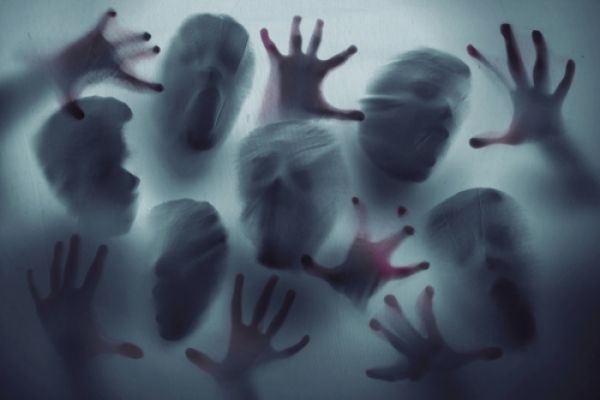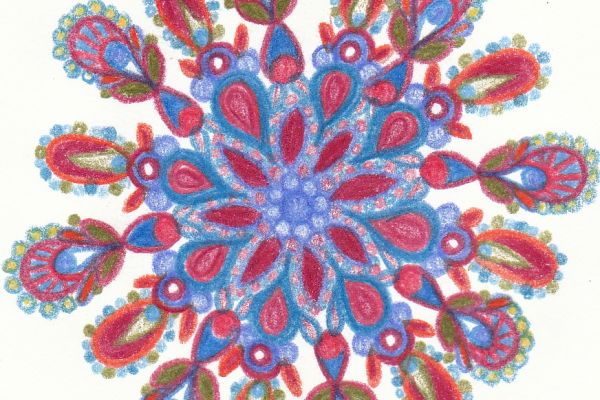ROOTS OF INTOLERANCE
Verified by Psychology Today

Fear
Understanding the Roots of Intolerance
The psychology of hate.
Updated August 30, 2024 | Reviewed by Abigail Fagan
THE BASICS
- What Is Fear?
- Take our Generalized Anxiety Disorder Test
- Find a therapist to combat fear and anxiety
Key points
- Hate can come from a place of ignorance and lack of exposure to different cultures, beliefs, and ways of life.
- Deeper issues such as misunderstandings, fear, or a lack of empathy can also create hate.
- Education is crucial to combat hate towards others.

Source: Yonikamoto/Shutterstock
Today, hate is almost pervasive, permeating different forms of media, creating a sense of division and coldness. People express hate for various reasons, often hiding behind their screens to lash out at those who disagree with them. It’s challenging not to absorb their anger and rage. However, understanding is a potent tool that can bring warmth and clarity to the chaos. While we can’t eradicate hate, with understanding and empathy, we can diminish its intensity, take it less personally, and empower ourselves to make a difference in the impact that hate has.
Hate is a powerful negative emotion aimed at people, things, or ideas. It’s often tangled with feelings of anger, contempt, and disgust. When you hate something or someone, you generally believe nothing is positive about this person or group and that you have nothing in common.
Research and psychology tell us that hate often stems from mistrust, feelings of powerlessness, or vulnerability. History shows us that hate is frequently tied to issues of power and control. It’s a pattern where one group believes it should dominate another, leading to oppression and violence.
But hate can also come from a place of ignorance and lack of exposure to different cultures, beliefs, and ways of life. One historical example where hate stemmed from ignorance and a lack of exposure to different cultures, beliefs, and ways of life is the European colonization of the Americas. When European settlers arrived in the New World, they encountered Indigenous peoples whose cultures, languages, and lifestyles vastly differed from their own. Lacking understanding and exposure to these diverse ways of life, many European colonizers viewed Indigenous cultures as inferior or even “savage.” This tragic chapter in history highlights how ignorance and narrow worldviews can give rise to hate and intolerance, resulting in long-lasting damage to entire cultures and communities.
article continues after advertisement

Source: yurazaga/ istock
Recognizing that hateful actions are not always born of genuine malice is essential. They often stem from deeper issues such as misunderstanding, fear, or a lack of empathy. For instance, during the Salem Witch Trials in the late 17th century, fear and ignorance fueled many of the accusations and subsequent executions. Similarly, the internment of Japanese Americans during World War II was primarily driven by fear and racial prejudice following the attack on Pearl Harbor. While deeply harmful, these actions were rooted in a lack of understanding and the projection of fear onto innocent people.
Science supports the idea that hate often arises from complex psychological and social factors. Research in psychology indicates that hate can be a response to perceived threats or significant social and economic stress. For example, studies have shown that individuals who feel economically threatened may be more likely to harbor prejudices against those they view as competitors for resources. Neuroscience also reveals that the brain regions activated by fear and threat overlap significantly with those activated by feelings of hatred, suggesting that these emotions are closely linked. Understanding these factors can help us better comprehend the roots of hate and how to address it, providing us with a more enlightened and proactive approach to combat hate.
Additionally, dehumanization occurs when individuals or groups are perceived as less than human, stripping them of their dignity and worth. This mindset can lead to hateful actions, as it becomes easier to justify mistreatment or violence against those seen as ‘other.’ A simple way to understand dehumanization is to think of it as the process of making someone seem less human, often by using derogatory language or stereotypes. For example, during the Holocaust, the Nazi regime’s propaganda relentlessly portrayed Jewish people as subhuman, which facilitated widespread acceptance of their horrific persecution and genocide. This dehumanization allowed countless atrocities to be committed with little opposition from the broader society.
Understanding that hate often stems from deeper issues encourages us to look beyond the surface. By examining the underlying causes—whether it’s ignorance, fear, or a lack of empathy—we can better address and mitigate hateful behaviors. This understanding, coupled with a strong sense of empathy, empowers us to take a more enlightened and proactive approach to combat hate rather than simply reacting to its manifestations.
So, how do you combat hate? Instead of focusing on those who spread hate, embrace and celebrate who you are within your community and belief system. By standing firm in your identity, you affirm your worth and serve as a guide to acceptance for others.
Additionally, education is crucial to combat hate towards others. Educating children early on involves informing them about different cultures, histories, and experiences and critically evaluating your biases. The most potent weapon against hate is empathy. Empathy is the ability to understand and share the feelings of others. By practicing empathy, you can create spaces where love can flourish, ultimately diminishing the power of hate in society. By embracing empathy, you make a more compassionate world where understanding and respect guide your actions and interactions. You can’t control others or what they decide to do with their emotions, but you can be an agent of change by embodying love and acceptance. While we may not be able to eradicate hate entirely, understanding its roots and manifestations gives us the power to mitigate its impact. We can create a more compassionate society by developing empathy, promoting education, and embracing our diverse identities with pride. Each act of understanding and kindness chips away at the walls of hate, paving the way for a world where love and respect prevail.
References
Aumer-Ryan K., Hatfield E. (2007). The design of everyday hate: A qualitative and quantitative analysis. Interpersona, 1(2), 143–172.
Ballard J. A., McDowell A. J. (1991). Hate and combat behavior. Armed Forces & Society, 17(2), 229–241
Baumeister R. F., Butz D. A. (2005). Roots of hate, violence, and evil. In Sternberg R. J. (Ed.), The psychology of hate (pp. 87–102). Washington, DC: American Psychological Association.Morereferences
About the Author

Online:
To read more of Dr. Cohen’s articles visit http://doctorilene.com , Facebook, Instagram, LinkedIn
advertisement
Fear Essential Reads

Cancer Treatment Is Over. Now What?


Transforming Anxiety Into Strength

Why You May Not Be Optimizing Your Cancer Protection

The Fear Factor: How Singlehood and Self-Esteem Drive Dating
advertisement
Get the help you need from a therapist near you–a FREE service from Psychology Today.

Cities:
- Atlanta, GA
- Austin, TX
- Baltimore, MD
- Boston, MA
- Brooklyn, NY
- Charlotte, NC
- Chicago, IL
- Columbus, OH
- Dallas, TX
- Denver, CO
- Detroit, MI
- Houston, TX
- Indianapolis, IN
- Jacksonville, FL
- Las Vegas, NV
- Los Angeles, CA
- Louisville, KY
- Memphis, TN
- Miami, FL
- Milwaukee, WI
- Minneapolis, MN
- Nashville, TN
- New York, NY
- Oakland, CA
- Omaha, NE
- Philadelphia, PA
- Phoenix, AZ
- Pittsburgh, PA
- Portland, OR
- Raleigh, NC
- Sacramento, CA
- Saint Louis, MO
- San Antonio, TX
- San Diego, CA
- San Francisco, CA
- San Jose, CA
- Seattle, WA
- Tucson, AZ
- Washington, DC
Are you a Therapist? Get Listed Today
More from Ilene Strauss Cohen Ph.D.

Relationships
3 Min Read
The Foundation of Healthy Relationships
Trust, honesty, respect, communication, effort, and collaboration are the foundation of healthy relationships.

People-Pleasing
3 Min Read
The Complexity of People-Pleasing
People-pleasing often arises to manage anxiety about others’ reactions or disapproval

People-Pleasing
3 Min Read
Breaking the Pattern of the Need to Please
People-pleasers often endure ongoing invalidation based on how others treat them.

Relationships
4 Min Read
Defining Yourself: The Importance of Relationships
The process of defining oneself is deeply intertwined with family dynamics.
More from Psychology Today

Fear
6 Min Read
What’s Really Going on When Someone Stares at You
Whether we approach or avoid a dominant person largely depends on our status.

Fear
5 Min Read
Five Ways to Cultivate Bravery
Leaning into discomfort and seeing life as a grand adventure is where amazing growth happens.

Self Tests
3 min
Generalized Anxiety Disorder Test
Could you be experiencing generalized anxiety?

Fear
3 Min Read
On the Psychology of Horror Movies
Many people derive pleasure from frightening entertainment.

Fear
3 Min Read
Feeling the Fear and Doing It Anyway
There are times in our lives when we can choose the safer path or push ourselves past our comfort zone.

Fear
4 Min Read
7 Tips for Coping with a Paranoid Partner
With delusional disorder of the persecutory type (DDPT), the sufferer is gripped by a fixed false belief that involves a singular situation.

Fear
4 Min Read
Why Some People Don’t Like Horror Movies
Some people avoid horror movies because of genre prejudice.

Fear
7 Min Read
Children Who Seemingly Remember Past Lives
Jim Tucker, a psychiatry professor, is the author of “Return to Life: Extraordinary Cases of Children Who Remember Past Lives.”



Recent Issues






Psychology Today © 2024 Sussex Publishers, LLC
Find a Therapist
- Get Help
- Find a Therapist
- Find a Treatment Center
- Find a Psychiatrist
- Find a Support Group
- Find Online Therapy
- United States
- Austin, TX
- Brooklyn, NY
- Chicago, IL
- Denver, CO
- Houston, TX
- Los Angeles, CA
- New York, NY
- Portland, OR
- San Diego, CA
- San Francisco, CA
- Seattle, WA
- Washington, DC
Get Help
Mental Health
Personality
Personal Growth
Relationships
Family Life
Do I Need Help?
Recently Diagnosed?
Talk to Someone
- Find a Therapist
- Find a Treatment Center
- Find a Psychiatrist
- Find a Support Group
- Find Online Therapy
Magazine

When we fall prey to perfectionism, we think we’re honorably aspiring to be our very best, but often we’re really just setting ourselves up for failure, as perfection is impossible and its pursuit inevitably backfires.
Today
News
- The Puzzling Relationship Between Pets and Child Development
- Controlling Pupil Size to Influence Arousal and Emotion
- Public Health and Psychiatry: Two Ways to Treat Mental Illness
- Male and Female Brains Can Be Classified with Striking Accuracy
Essential Reads
- The Gentle Principle of Getting Stuff Done
- On the Benefits of Napping
- Are Therapists Behind the Rise in Family Estrangements?
- Now That the Election Is Over, What Comes Next Emotionally?
Trending Topics
See Allhttps://consentcdn.cookiebot.com/sdk/bc-v4.min.html
